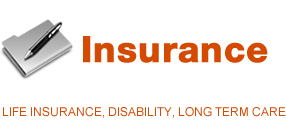1) S Corporations are not subject to corporate AMT. In addition, although stock redemptions, as a result of death, generally do not result in an increase in basis for remaining shareholders, tax-exempt proceeds received by a "pass-through entity" such as a S Corporation or a partnership, give each co-owner a pro rata increase in basis. Since life insurance proceeds are tax exempt, the receipt of the death benefit would give each shareholder a proportionate increase in basis. For example: if an S Corporation has 3 equal shareholders and receives a $3 million death benefit, each would receive a $1 million basis increase. But, in the situation involving the death of a shareholder, since the estate of the deceased shareholder gets a step-up under the normal rule for inherited property, his or her share of the pass-through would be "wasted".
2) The increasing cash value of a permanent life insurance policy is not subject to income tax until the policy is surrendered and gain is realized. IRC S72(e).
3) A buy-sell agreement may peg the value of stock for Federal Estate Tax purposes if the agreement is an arm's length transaction, fixes a price that is adequate and fair at the time the agreement is entered into, and prohibits the shareholders from selling the stock during life or at the death to anyone other than the contracting parties at the specific price. Buy-sell agreements between family members (including siblings) should thus be very wary of this rule.
4) The Pension Protection Act of 2006 enacted rules relating to life insurance policies owned by businesses on the lives of "employees" (defined very broadly in the law), that are issued after August 17, 2006. For life insurance death benefits to be income tax-free to the business, the "employer-owned life insurance" rules of IRC SS101(j) and 6039I must be met. There are four general requirements: (1) notice must be given to insured, and his or her consent obtained: (2) either the insured must fit into certain categories, or the proceeds must be used for certain purposes (e.g., business continuation planning): (3) there must be record-keeping: and (4) reporting to the IRS concerning these policies. IRS reporting is done on IRS form 8925.
If you have any questions or need any additional information contact us at (949)275-6233 or visit our website at www.levineadvisors.com
Share on LinkedIn
Share on Facebook
Share on Google Plus
Share on Twitter







